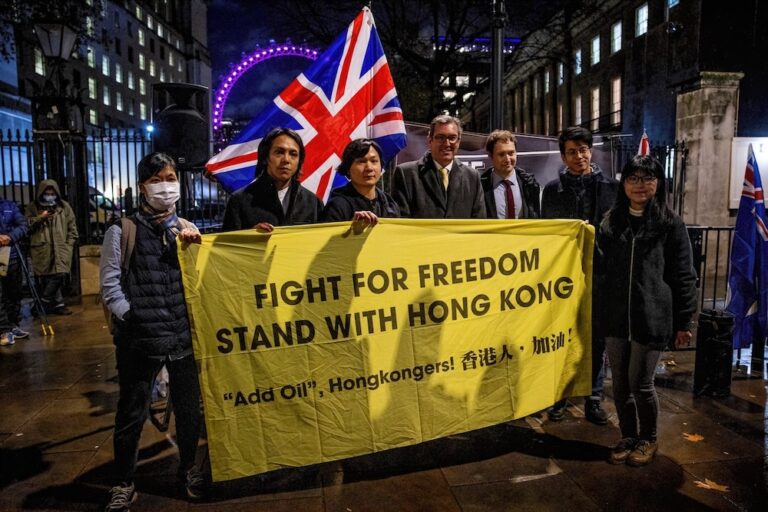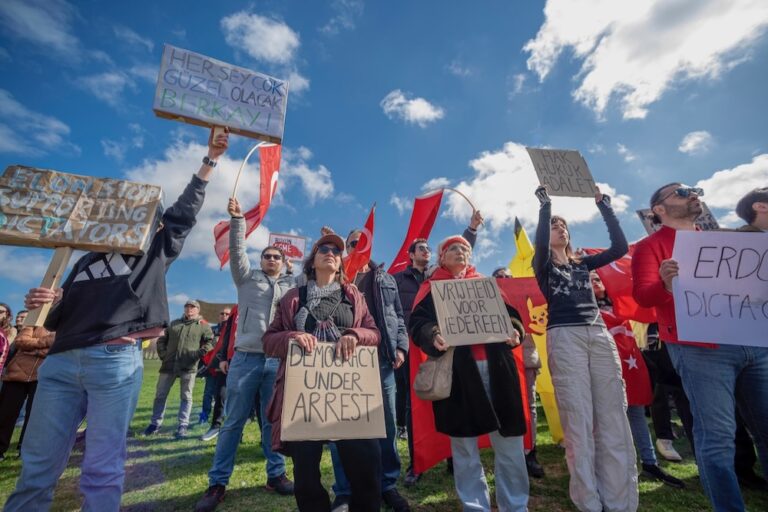Decision "sets an important precedent for open justice," says ARTICLE 19.
(ARTICLE 19/IFEX) – 27 January 2010 – ARTICLE 19 welcomes today’s unanimous decision of the Supreme Court ordering the identification of five persons who had their assets frozen by the Treasury for suspicion of supporting terrorist activities. The judgment emphasises the principles of open justice and the public interest, and provides important guidance for the courts when attempting to balance the right to privacy with the right to freedom of expression.
All the individual appellants had been designated under the Terrorism (United Nations Measures) Order 2006 or the Al-Qaida and Taliban (United Nations Measures) Order 2006, or both. Under these orders, which give effect to UN resolutions, the Treasury may freeze the funds and assets of individuals who are suspected of facilitating terrorism.
The appellants had argued that the anonymity orders were necessary because identifying them as claimants in the substantive proceedings would infringe their right to respect for their private and family life, as protected by Article 8 of the European Convention on Human Rights (ECHR). ARTICLE 19 had joined the Guardian News and Media Limited and other groups in arguing that the names should be made public as a matter of public interest.
Lord Rodger delivered the judgment on behalf of the seven-judge Court, rather than the usual five. The Court said that the competing claims of privacy and freedom of the press needed to be balanced; and that the decision on which interest should prevail depended on the facts of each particular case, and “whether there is a sufficient general, public interest in publishing a report of the proceedings . . . to justify any resulting curtailing of . . . right to respect for their private and family life”.
The Court reviewed the history of the anonymity of individuals in court proceedings in the UK and European courts, noting that the lower courts seemed “to grant the anonymity orders without any prolonged consideration and without explaining their thinking”.
The individual appellants argued that their anonymity was necessary because they faced social and physical harm if they were identified publicly, especially since the Treasury orders could not be effectively challenged in court.
However, the Court found that the right of free expression was more compelling. It emphasised the importance of editorial independence and the need to inform the public, noting that without names, stories are likely to be “devoid of . . . human interest” and less likely to be read and stimulate discussion.
The Court pointed to the negative consequences of the anonymity orders upon communities: “Concealing identities simply casts a shadow over entire communities” and even helps “to foster an impression that the mere making of the orders justifies sinister conclusions about these individuals”. Finally, the Court held that the “public has a legitimate interest in not being kept in the dark about who is challenging” the orders, noting that the limits would also affect press coverage that may be supportive of the individuals.
In conclusion, the Court held that there was a “powerful general public interest in identifying” the individuals which justified overriding their privacy rights.
Although the Supreme Court reserved its judgment on the matter of anonymity orders in control order cases, its concluding assertion raised questions about their validity, stating that, “many of the same issues would obviously arise if an application were made to recall anonymity orders made in any outstanding control order proceedings”.
“ARTICLE 19 believes that the Court’s judgment sets an important precedent for open justice and reaffirms the public’s right to know in matters of grave public importance,” says Sejal Parmar, Senior Legal Officer for ARTICLE 19.
Click here to read the full document of the Supreme Court judgment


